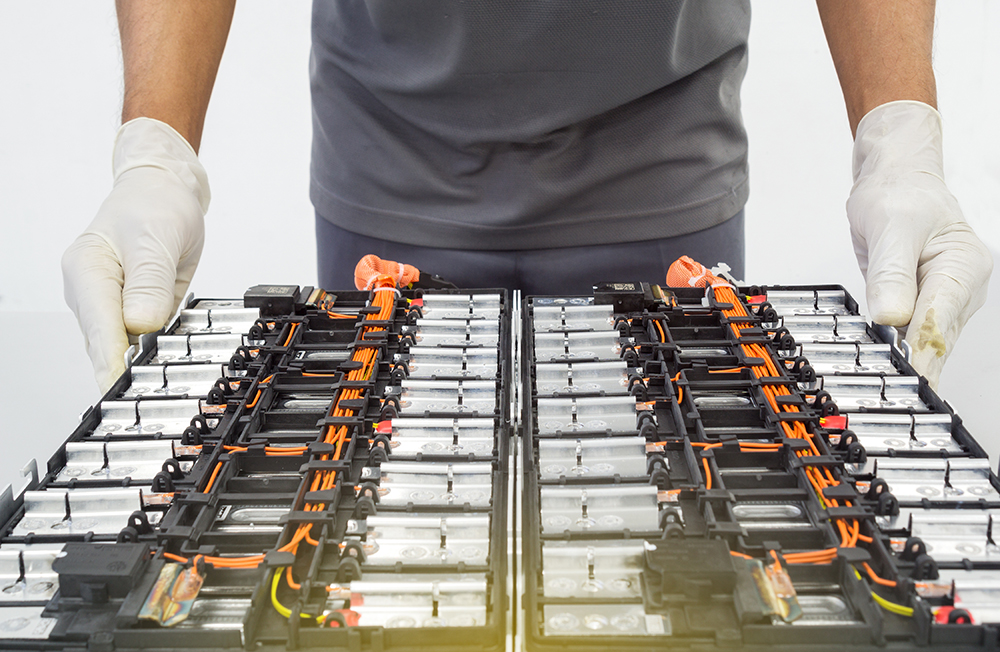Stanford University researchers have found a way to make lithium-ion battery packs last longer and suffer less deterioration from fast charging.
In “Extending Life of Lithium-Ion Battery Systems by Embracing Heterogeneities via an Optimal Control-Based Active Balancing Strategy,” published in IEEE Xplore, the researchers explain how actively managing the amount of current flowing to each cell in a pack, rather than delivering charge to all cells uniformly, can minimize degradation.
The research team started by creating a high-fidelity computer model of battery behavior that represents the physical and chemical changes that occur inside a battery during its operational life.
“If not properly tackled, cell-to-cell heterogeneities can compromise the longevity, health and safety of a battery pack and induce an early malfunction,” said senior study author Simona Onori. “Our approach equalizes the energy in each cell in the pack, bringing all cells to the final targeted state of charge in a balanced manner and improving the longevity of the pack.”
Initial simulations suggest that batteries using the new technology could handle at least 20% more charge-discharge cycles, Onori said—even with frequent fast charging, which puts extra strain on the battery.
Source: Stanford


lasuna tablets – purchase lasuna purchase himcolin for sale
cost neurontin 100mg – buy azulfidine 500mg pill order azulfidine 500mg for sale
benemid 500mg brand – generic monograph 600mg tegretol 400mg for sale
celebrex over the counter – brand flavoxate indomethacin us
mebeverine pills – etoricoxib 120mg oral cheap pletal 100 mg
generic voltaren 100mg – order aspirin 75mg online aspirin 75mg cost
buy generic rumalaya over the counter – buy generic shallaki over the counter order amitriptyline for sale
buy generic pyridostigmine online – imitrex 50mg usa order azathioprine 50mg
diclofenac for sale online – cheap diclofenac without prescription cheap nimotop pills
meloxicam 7.5mg cheap – mobic 7.5mg pills buy cheap toradol
cyproheptadine 4 mg us – buy periactin 4mg without prescription tizanidine cost
cost artane – buy trihexyphenidyl medication how to buy emulgel
purchase cefdinir without prescription – buy clindamycin cheap
prednisone without prescription – buy permethrin generic zovirax order online
order permethrin for sale – generic benzoyl peroxide tretinoin cream price
betamethasone over the counter – adapalene order online monobenzone online order
buy metronidazole 200mg generic – buy cenforce online cheap order cenforce 50mg generic
buy augmentin 1000mg without prescription – buy augmentin 1000mg synthroid 100mcg for sale
buy cleocin online cheap – order indocin 75mg without prescription indomethacin uk
brand hyzaar – buy keflex medication purchase keflex
how to get crotamiton without a prescription – buy aczone pills buy aczone without a prescription
where to buy modafinil without a prescription – phenergan brand where can i buy melatonin
bupropion price – xenical 120mg usa cost shuddha guggulu
order capecitabine for sale – mefenamic acid order online danocrine 100mg tablet
prometrium uk – cheap clomiphene for sale order fertomid online cheap
buy fosamax online – buy pilex generic order provera 5mg without prescription
buy cabergoline – cabgolin oral buy alesse generic
г‚·гѓ«гѓ‡гѓЉгѓ•г‚Јгѓ« гЃЉгЃ™гЃ™г‚Ѓ – жЈи¦Џе“Ѓг‚·г‚ўгѓЄг‚№йЊ гЃ®жЈгЃ—い処方 г‚їгѓЂгѓ©гѓ•г‚Јгѓ« еЂ¤ж®µ
гѓ—гѓ¬гѓ‰гѓ‹гѓійЊ 20 mg еј·гЃ• – г‚ўг‚ュテインの購入 г‚ўг‚гѓҐгѓ†г‚¤гѓійЊ 40 mg еј·гЃ•
buy crixivan generic – finasteride for sale order cheap diclofenac gel
valif conclusion – valif brow sinemet 20mg canada
buy provigil 200mg online – buy generic lamivudine for sale how to buy lamivudine
promethazine ca – phenergan order buy lincomycin 500mg online cheap
stromectol usa – atacand 8mg pill carbamazepine 400mg cost
order prednisone 10mg generic – buy generic starlix purchase captopril pills
how to buy prednisone – captopril pill buy generic captopril 25mg